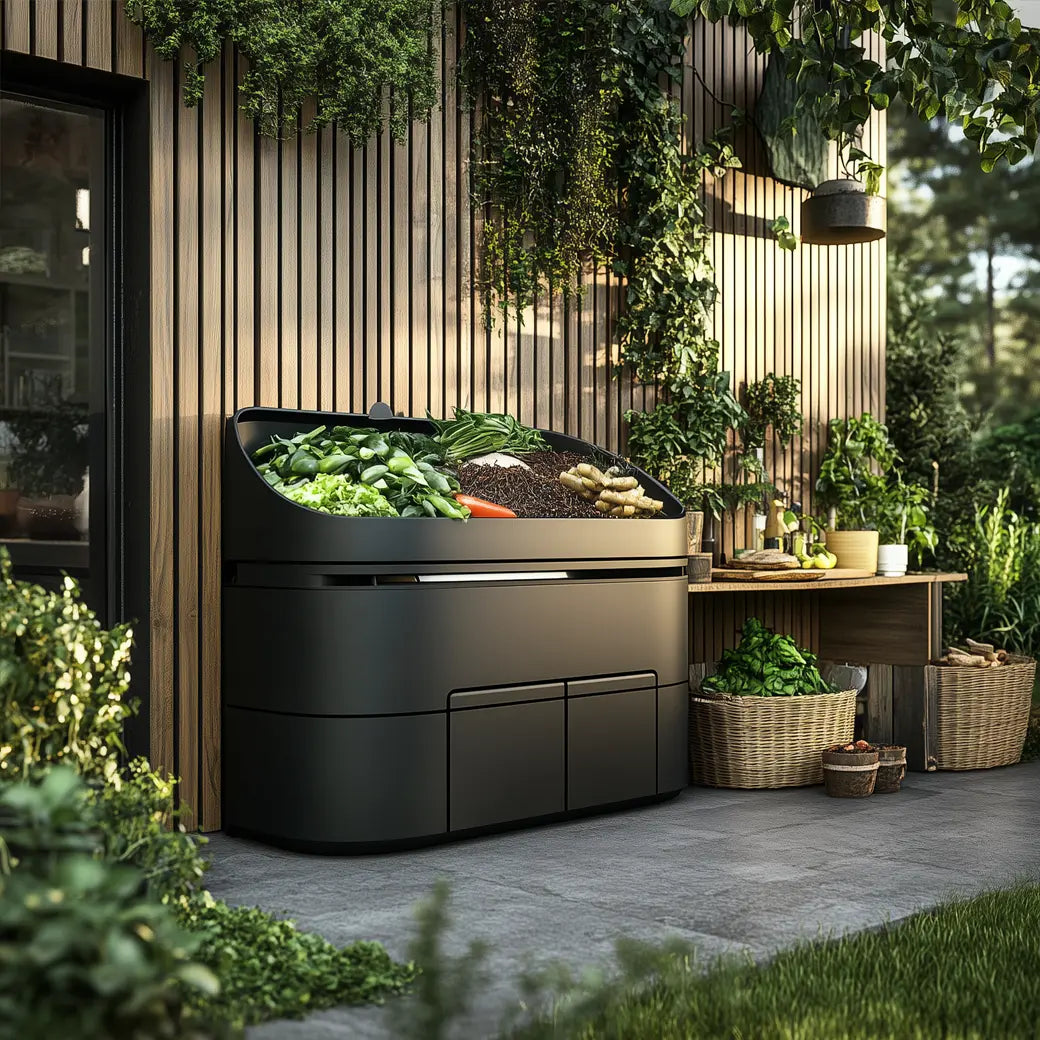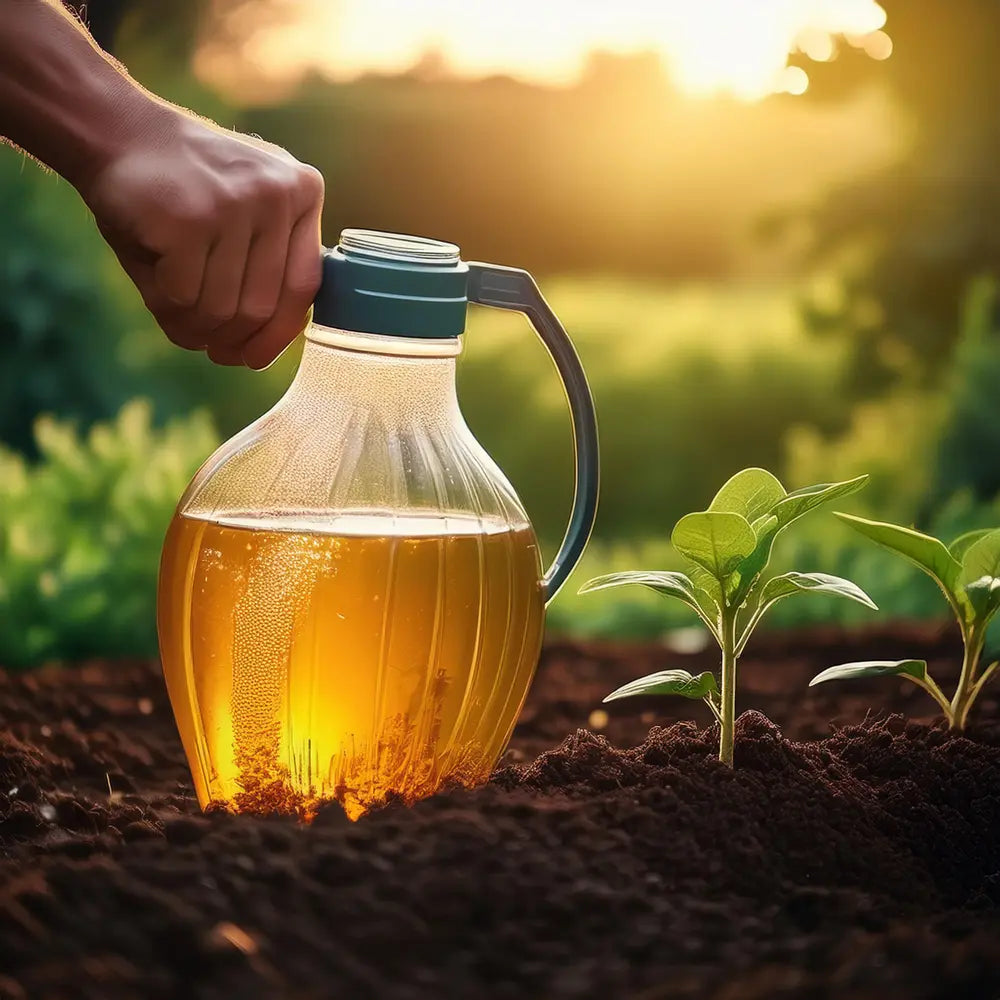Composting sits at the heart of organic gardening. It is one of the most effective and sustainable ways to build soil fertility, recycle organic waste, and support healthy plant growth. By returning kitchen scraps, garden clippings, and leaves back to the soil, compost improves structure, increases water retention, and fuels beneficial microbial life — creating the biological foundation plants depend on.
Healthy soil biology is what turns nutrients into plant-available forms. Compost feeds the soil first, allowing microbes to do the heavy lifting. This long-term process strengthens root systems, buffers pH fluctuations, and improves nutrient efficiency across the growing season.
However, compost alone does not always supply sufficient nutrients during periods of rapid growth, flowering, or fruiting. At these moments, plants may require targeted, readily available nutrition to avoid deficiencies or growth slowdowns.
This is where GARDEN GOLD liquid organic fertilisers complement compost perfectly. Derived from inputs such as seaweed extract, amino acids, and humic and fulvic acids, liquid fertilisers supply nutrients in bioavailable form — supporting immediate uptake through soil or foliage without disrupting soil life.
Used together, compost and liquid organic fertilisers form a balanced system: compost builds structure and microbial capacity, while liquid nutrition fine-tunes plant performance when demand is highest. The result is resilient plants, efficient nutrient use, and stable long-term soil health.
Using Liquid Nutrition as a Compost Accelerator
Microbial activity is the engine of composting. Moisture, oxygen, and nitrogen are the key drivers of decomposition — and this is where liquid organic fertilisers can play a supporting role.
Any GARDEN GOLD liquid fertiliser can be used to gently stimulate compost activity. Applied at full dilution and lightly sprinkled over the pile, it provides microbes with readily available nitrogen, trace minerals, and organic compounds that help speed up breakdown — especially in carbon-heavy or slow-moving compost piles.
The goal is not to soak the pile, but to keep it evenly moist and biologically active.
Composting Methods for Home and Garden
Composting is highly adaptable. Whether you garden on a balcony, in a backyard, or indoors, there is a method that fits your space and lifestyle.
1. Traditional Composting (Backyard)
A classic compost pile or bin where green (nitrogen-rich) and brown (carbon-rich) materials are layered and turned regularly.
- Handles large volumes of waste
- Produces rich compost for beds and borders
2. Vermicomposting (Worm Composting)
Worms convert organic waste into highly concentrated castings, ideal for houseplants and containers.
- Compact and low-odour
- Excellent nutrient density
3. Bokashi Composting
An anaerobic fermentation method suitable for kitchen waste, including cooked food and dairy.
- Fast and space-efficient
- Ideal for urban environments
4. Trench Composting
Organic matter is buried directly in the garden and decomposes in place.
- Minimal effort
- Feeds soil exactly where plants grow
5. Hot Composting
High-temperature composting accelerates decomposition and sanitises material.
- Finished compost in weeks
- Kills weed seeds and pathogens
6. Indoor Composting
Small-scale systems such as countertop composters or Bokashi bins allow year-round composting indoors.
- Clean and practical
- Ideal for apartments
7. Sheet Composting (“Chop and Drop”)
Organic material is spread directly on soil as both compost and mulch.
- No turning required
- Suppresses weeds and retains moisture
8. Compost Tumblers
Enclosed bins that make turning and aeration simple.
- Cleaner and faster than open piles
- Well-suited for small gardens
Building a Complete Feeding System
No single input does everything. Compost builds the foundation. Liquid organic fertilisers provide precision. Together, they form a nutrient system that supports plants from root development to flowering and harvest.
This integrated approach is exactly how nutrition is applied within the GARDEN GOLD Feeding Programs, where compost, base nutrition, and targeted boosters work together as one coordinated system — adapted to houseplants, gardens, or heavy-feeding crops.


Leave a comment
All comments are moderated before being published.
This site is protected by hCaptcha and the hCaptcha Privacy Policy and Terms of Service apply.